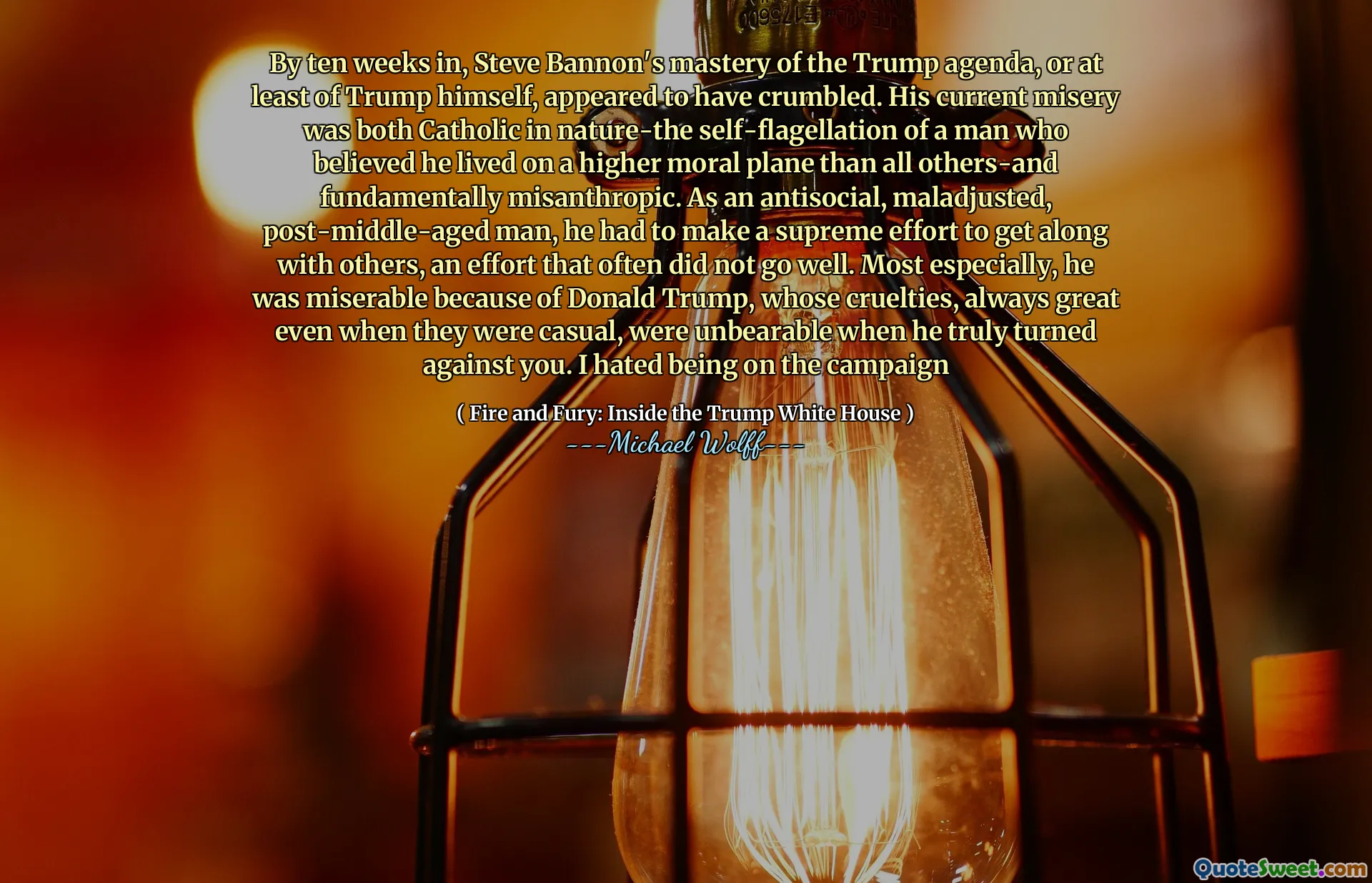
By ten weeks in, Steve Bannon's mastery of the Trump agenda, or at least of Trump himself, appeared to have crumbled. His current misery was both Catholic in nature-the self-flagellation of a man who believed he lived on a higher moral plane than all others-and fundamentally misanthropic. As an antisocial, maladjusted, post-middle-aged man, he had to make a supreme effort to get along with others, an effort that often did not go well. Most especially, he was miserable because of Donald Trump, whose cruelties, always great even when they were casual, were unbearable when he truly turned against you. I hated being on the campaign
By the tenth week, Steve Bannon seemed to be losing control over the Trump agenda and his relationship with Trump himself. His despair was twofold: it stemmed from a self-imposed moral superiority that led to inner turmoil and a deep-seated disdain for others. As a man struggling socially and personally, Bannon found it increasingly difficult to connect with people, leading to a heightened sense of isolation and frustration.
His unhappiness was primarily linked to Donald Trump, whose often casual yet harsh behavior was particularly painful for Bannon when the relationship turned sour. This tumultuous dynamic left Bannon feeling overwhelmed and distressed during the campaign, as chronicled in Michael Wolff's book "Fire and Fury: Inside the Trump White House."











